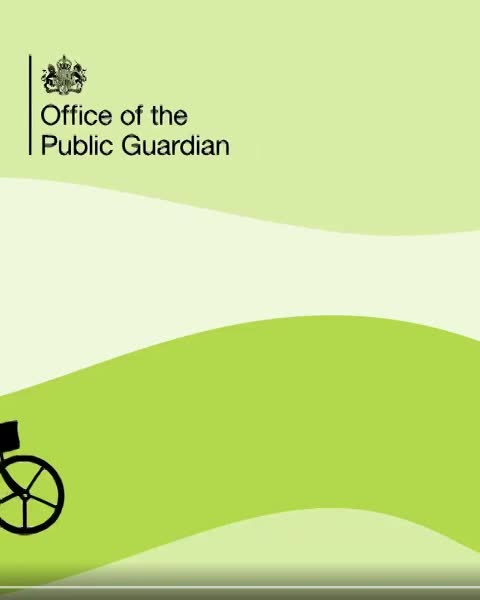What happens if you try to help a loved one without an LPA?

By Chris Watts, MSWW, CEMAP
Last verified: 15 August 2025 (England & Wales)
Quick-read summary
It’s natural to think you can step in and help your spouse, parent, or child if something happens to them. But without a Lasting Power of Attorney (LPA), even the simplest actions — paying bills, using a debit card, or selling a home — can be blocked or treated as unlawful.
Everyday acts of love and common sense can backfire, leaving families facing frozen accounts, delays, or even accusations of fraud. These real examples show why an LPA isn’t just paperwork — it’s essential protection for you and your family.
Practical checklist: when problems arise without an LPA
- 🏥 Medical emergency — sudden accident or illness leaves someone without capacity
- 💳 Money matters — family “helps” by using cards, passwords, or accounts
- 🏠 Property — joint ownership doesn’t guarantee legal authority to sell or manage
- 📑 Contracts — banks and utilities won’t recognise informal permission
- ⚖️ Legal risk — actions may be treated as fraud, computer misuse, or breach of contract
How this works in real life
Example 1: The accident at work
- What happened: Kevin suffers a serious head injury at work and loses mental capacity.
- What the family member did: His wife, panicking about bills and hospital costs, logs onto his computer and uses his online banking details to transfer money.
- Why it felt natural: She believes she is helping him and keeping the household afloat.
- Why it’s actually unlawful: Without a Lasting Power of Attorney (LPA), she has no legal authority. The bank treats her actions as unauthorised, and under the Computer Misuse Act 1990 it could technically be a criminal offence.
- Consequence: The bank may block the account, and she risks investigation for misuse.
- If an LPA had been in place: She could have acted immediately and lawfully, with full bank recognition.
Example 2: The bank card “favour”
- What happened: Caroline’s husband is recovering from a stroke. He tells her to “just use my card” for groceries.
- What the family member did: She withdraws £200 from his account using his PIN.
- Why it felt natural: This seems like an everyday, harmless favour within a marriage.
- Why it’s actually unlawful: Card agreements are clear: only the named account holder may use the card. This is unauthorised use and technically a breach of contract — even a criminal offence.
- Consequence: The bank could freeze the card or treat her as having committed fraud.
- If an LPA had been in place: She could have withdrawn the funds properly, with no risk.
Example 3: The adult child and the utility bills
- What happened: James’s mother develops dementia. He takes responsibility for paying her bills.
- What the family member did: He logs into her online banking using her password to pay for electricity and water.
- Why it felt natural: He believes he is doing the responsible thing, looking after his mother’s affairs.
- Why it’s actually unlawful: Banks and utility companies will not recognise his “permission.” Without an LPA, he is acting outside legal authority.
- Consequence: His actions could be regarded as fraud or computer misuse.
- If an LPA had been in place: He would have had full authority to manage her accounts.
Example 4: The family house sale
- What happened: Claire and her husband jointly own their home. He suffers a brain haemorrhage and loses capacity.
- What the family member did: Claire assumes she can sell the house to fund his care.
- Why it felt natural: She is his wife and co-owner; it feels obvious she should be able to proceed.
- Why it’s actually unlawful: Without an LPA (or deputyship from the Court of Protection), she cannot legally complete the sale.
- Consequence: The sale stalls, forcing her into months of delay and an expensive Court of Protection application.
- If an LPA had been in place: She could have dealt with the property straight away.
Example 5: The “I’ll never be caught” scam
- What happened: Alice realised she had been scammed and that money had been taken from her account.
- What the family member did: She asked her bank for a refund. During the investigation, the bank finds logins from multiple devices, showing that her family has also been accessing the account.
- Why it felt natural: Alice thought sharing her password with trusted relatives was safe.
- Why it’s unlawful:
- UK law says banks can refuse to refund an unauthorised payment if the account holder failed to keep their details secure.
- Under the new APP (Authorised Push Payment) fraud refund rules (October 2024), reimbursement of up to £85,000 is possible — but not if the victim ignored the “consumer standard of caution,” such as by sharing passwords.
- Consequence: Alice loses the stolen money and could face further investigation. In 2024, more than 225,000 people in the UK were flagged as “money mules” in fraud cases, with many losing banking access entirely.
- If an LPA had been in place: Access would have been clearly authorised, protecting her rights and reducing the risk of liability.
These real-life scenarios highlight a common theme: family members often act out of love, necessity, or urgency — yet without the right legal authority, those actions can backfire. What feels natural can turn into delay, financial loss, or even accusations of wrongdoing. An LPA isn’t just a legal formality; it’s the safety net that allows families to step in with confidence when it matters most.
See it explained: the official OPG video.
The Office of the Public Guardian has produced a clear, short video that explains what happens if you suddenly lose the ability to manage your own money, property, or health decisions. It shows why families can struggle without legal authority — and how the two types of Lasting Power of Attorney (for Property and Financial Affairs, and Health and Welfare) provide the essential solution. It’s well worth a watch if you want to see how this works in practice.
Related story: As seen on the BBC
This isn’t just theory. The BBC’s Dom Littlewood featured a case on The One Show where a wife spent nearly two years struggling to access her own bank account after her husband’s cycling accident — all because there was no LPA in place. You can see the video on our As Seen on TV page.
Next steps
If you’d like to know more about putting an LPA in place, we can guide you through the process clearly and simply. It means your loved ones can step in straight away, without delay, stress, or risk.📞 Call us on 01788 577 977
📧 Email info@fernwills.com



